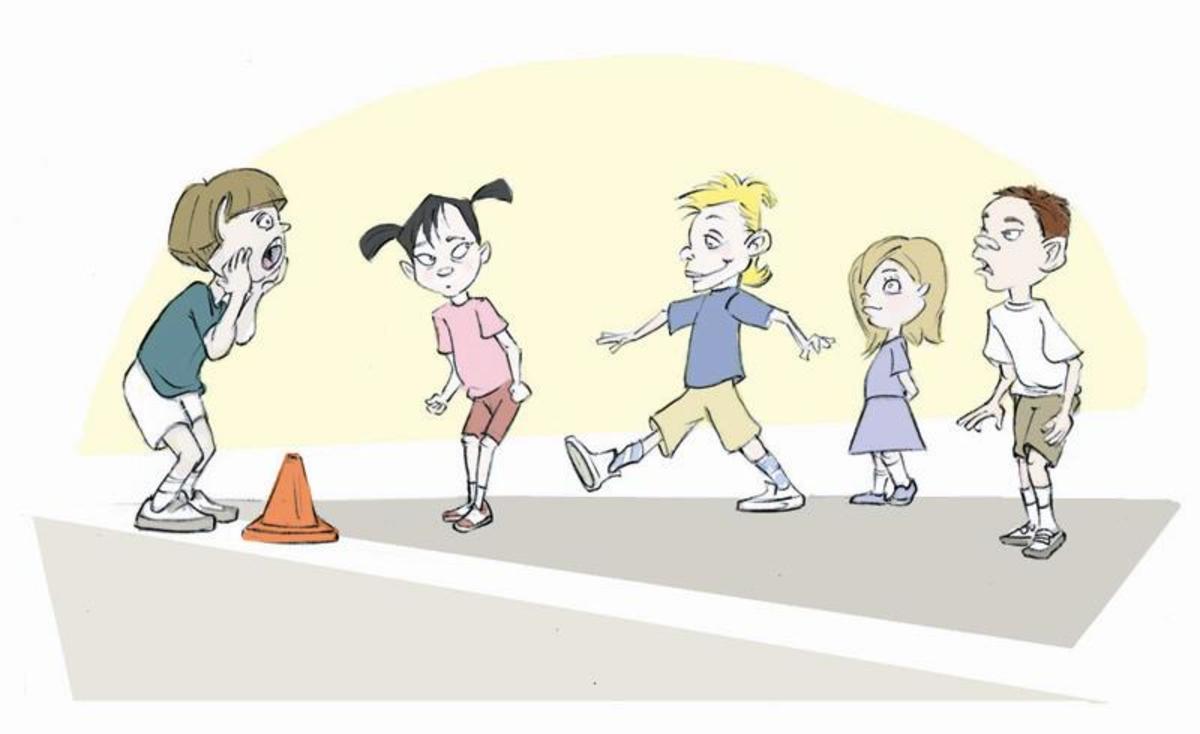Why do we react the way we react?
What Controls our Reactions
We all know, what controls the reactions of animals to different signals and stimuli appropriate to varying circumstances are the instincts. In the case of humans, because we are rational animals, one more variable enters into play with this, intuition or reason. How does reason manifest? What role does it play in our temperament, our responses?

For the sake of this study at least, let us consider all our actions as just reactions, reactions to instincts or, reactions to somebody else’s actions. (which then can go into a recursive loop - of reactions to, reactions to instincts and, reactions to, reactions to somebody else’s actions)

The Control Matrix
What controls our reactions?
There are two important parameters associated with every entity (action or our reaction) that shape our response. One is whether the entity is harmful or not. And the other is cogency; whether the entity is rational or not. Taking these into consideration, there are four possible responses. One, when the entity is harmful as well as rational. Two, when it is not harmful, but rational. Three, when it is harmful, but not rational. And four, when the entity is neither harmful nor rational.
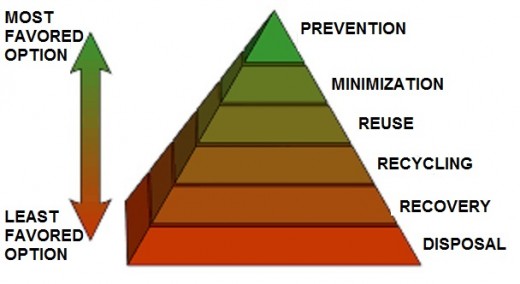
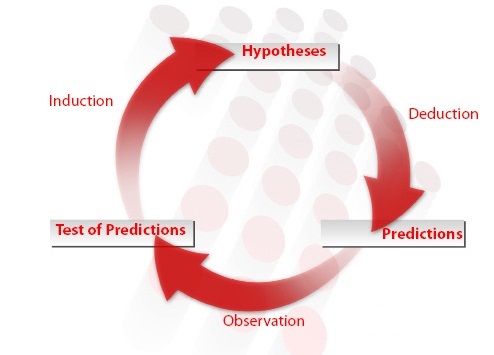
Responses Galore
Let us examine each case.
In the first case, where falls almost all experiences and transactions of the material world, we critically examine each such entity. Using the best available resource, we take pains to formulate and deliver an appropriate response. In short, we always react to the harmful and the rational, most fittingly.
Many examples can be cited. The way we confront our health issues, and, the success we have achieved in commanding our planet and exploring the world beyond our skies could easily fit in, as a few appropriate ones. In all these, a rather structured, formal but pragmatic, approach could be easily seen, in effecting a solution to the problem at hand. A casual glance at the way we confront these issues is enough to make this clear.
When we come to the next case, that is entities that are not harmful but rational, unlike the previous case, our response does not follow a predictable path. The variation in our responses also does not show any pattern, or, we do not react to these entities in a fitting manner. A couple of examples can make this clear.
One - Our self destructive approach to the issue of child labor. By practically removing all possibilities of proper engagement with work or work related tasks, we are effectively hindering the overall development of children.
Two - A self defeating style for helping the poor. In our desire to help those involved in traditional, outdated style of living, we end up forcibly making these people continue with the outdated lifestyle. Little do we realize that, as time passes by, it shall become more and more difficult for them to assimilate with rest of the world.
Three - Our misplaced priorities. By crying hoarse about the imagined destruction of our habitat, we (unknowingly, I think) prevent many futuristic developments from taking place, especially from the areas which need such improvements the most. This in fact will put the future generations at severe handicap in co-existing with the rest of the world, at least as equals. Especially when the borders between societies are getting shrunk on a global scale, this, I think will pose insurmountable difficulties to our progeny. Tomorrow when the ideas of basic science make a discernible shift from the past, nothing will be there to tie a natural link with those parts of the world which happen to become the contemporary centers of ideas or thoughts of latest knowledge.
The future could bring new unknowns
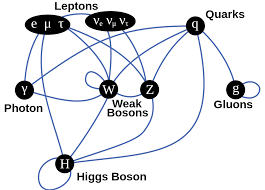
More Responses
Now, let us see how we react to entities that are harmful but not rational. Here we can learn a shocking truth about ourselves; we are always more than eager to accept such entities into our society, that too with hardly any critical examination. In short, in this case also, we do not show a fitting reaction.
For example, an idea that can take root may be about happiness. That human happiness can be achieved by inertia and inaction can be seen to be gaining huge popularity, instead of the idea that we tend to be happiest when we are vitally absorbed in creative pursuits, or when we are devoting ourselves to people or projects outside ourselves.
Another one about human fallibility could find wide acceptability. The idea that we absolutely need something other or stronger or greater than oneself on which to rely -- instead of the view that it is better to take the associated risks, of thinking and acting less dependently.
When it comes to entities that are irrational as well as harmful, we do not show such determined opposition as in the case of entities that are harmful but rational. In no case is such entities summarily rejected. We always try to accommodate them in our society, according them with the greatest reverence such that these are accepted notwithstanding the harm caused. Can we call this a fitting reaction?
For example, we are always seized of the idea that if something is or may be dangerous or fearsome we should be terribly upset and endlessly obsess about it. This prevents us from both confronting it face to face to render it non-dangerous and, when that is not possible, accepting the inevitable.
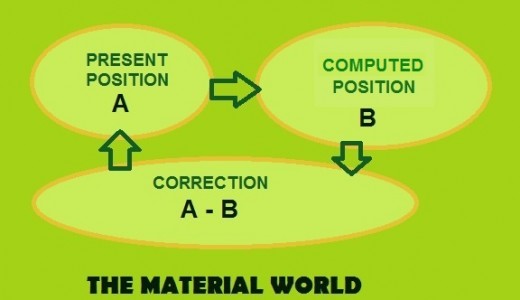
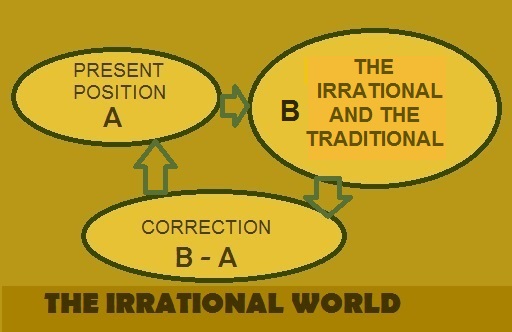
Two Worlds that Hold the Key
The last two cases in fact offer a good rationale for the prevalence of mythology and all related concepts, like religion, god or hell, in our day to day life. The whole purpose is to act as a repository of such entities, and these entities, as shown above, adds the necessary irrational content to our lives.
Concede, we are approaching all issues in the material plane logically and with reason. We always compare the actual with the desired, compute corrections wherever necessary, and apply those, to bring the actual to the desired. However these account for only one fourth of human transactions, the rest being of the forms rational and harmful, irrational and harmless as well as irrational and harmful. In all these areas, as our behavior is guided more by certain irrational interests than by natural propensity, a good part of human transactions lead to unintended consequences, which in many cases could be highly destructive. Therefore, a rather thorough study of human transactions, specifically of those lacking in reason, is necessary to evolve appropriate guidelines. Significantly, since the technique of evolving course corrections differs greatly between the material plane and the other ones, as evinced by the diagrams shown, such a study is essential to ensure our continued welfare.








